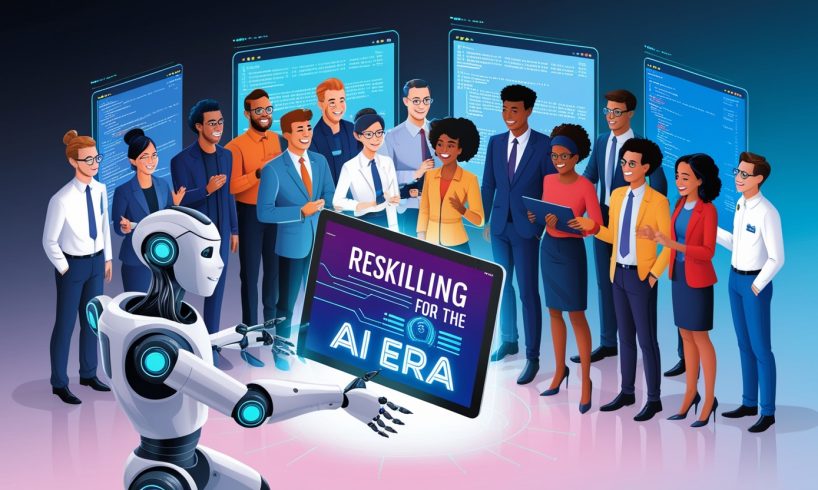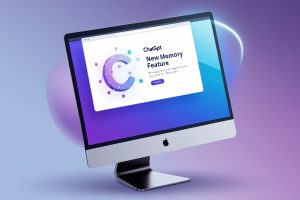
As artificial intelligence (AI) rapidly transforms industries, workplaces, and job roles, the need for employees to reskill has never been more urgent. AI isn’t just about robots taking over repetitive tasks—it’s reshaping how decisions are made, how products are developed, and how services are delivered. From customer service and marketing to finance and logistics, AI is everywhere. To stay relevant and future-proof your career, understanding what to learn today is key.
Why Reskilling for AI Matters
A 2024 report by the World Economic Forum predicts that by 2030, over 40% of the global workforce will need reskilling due to automation and AI adoption. But it’s not all bad news. AI also creates new jobs—especially for those who can bridge the gap between technology and real-world applications.
Reskilling isn’t just about learning to code. It’s about understanding how AI works, how to collaborate with it, and how to leverage it to enhance your role. Whether you’re in tech, HR, healthcare, or sales, there’s something new to learn.
Core Areas for AI-Focused Reskilling
1. Digital Literacy and Data Fluency
Even if you’re not in a technical role, understanding the basics of how data drives AI is crucial. This includes:
- How data is collected and processed
- What machine learning models do with that data
- How to interpret dashboards and analytics tools
Tools to explore: Excel (advanced features), Google Analytics, Tableau, Power BI, and beginner courses on data literacy from platforms like Coursera or edX.
2. Basic AI and Machine Learning Concepts
You don’t need to become a data scientist, but having a foundational understanding of AI will help you work better with tech teams and make informed decisions.
Topics to learn:
- What is AI and machine learning?
- Differences between supervised and unsupervised learning
- Common uses of AI in business (e.g., predictive analytics, chatbots, automation)
Courses: “AI For Everyone” by Andrew Ng on Coursera is a top-rated non-technical introduction to AI.
3. Prompt Engineering and AI Collaboration
With tools like ChatGPT, Claude, and Bard being widely used, employees now need to know how to work with AI. This includes:
- Writing effective prompts
- Understanding model limitations
- Using AI for brainstorming, drafting, and problem-solving
This skill—often called prompt engineering—is now considered a digital communication skill. It’s especially useful for content creators, marketers, educators, analysts, and even lawyers.
4. No-Code and Low-Code Tools
You no longer need to be a software engineer to automate workflows or build applications. No-code and low-code platforms allow non-technical professionals to build useful tools quickly.
Tools to learn:
- Zapier (automation)
- Airtable (data management)
- Notion AI (note-taking and content generation)
- Microsoft Power Apps
- Webflow or Bubble for simple web apps
These platforms help non-tech users become creators and problem-solvers using AI-enhanced tools.
5. Soft Skills and Human-Centered Abilities
Ironically, as AI becomes more advanced, human skills become more important. Employers increasingly value employees who can:
- Think critically and ethically about AI applications
- Communicate and collaborate across disciplines
- Lead teams through change and innovation
- Practice emotional intelligence in leadership and customer service
AI might be able to write an email or generate code, but it can’t manage a team’s morale, mediate a conflict, or inspire creative thinking the way a human can.
6. Domain-Specific AI Knowledge
Every industry is integrating AI differently. For example:
- Marketing: Learn AI-driven customer segmentation and A/B testing.
- Healthcare: Understand AI-assisted diagnostics and patient data privacy.
- Finance: Explore algorithmic trading, fraud detection, and risk modeling.
- Retail: Discover how AI optimizes inventory, logistics, and personalization.
Knowing how AI applies specifically to your field can give you a competitive edge and open up new career paths.
How to Start Reskilling Today
1. Take Online Courses
Start with beginner-friendly platforms:
- Coursera
- LinkedIn Learning
- Udemy
- edX
Search for topics like “AI for business,” “data literacy,” or “automation in [your industry].”
2. Join Internal Training Programs
Many companies now offer AI-focused upskilling for their employees. If your company provides internal courses or AI task forces, volunteer to participate.
3. Experiment with AI Tools
Hands-on experience is invaluable. Start using AI tools like:
- ChatGPT (content generation, ideation)
- Grammarly or Jasper (writing assistance)
- Canva with Magic Design (AI-powered design)
- Google Bard or Perplexity (AI research tools)
Test them out in your daily tasks to see how they can enhance your productivity.
4. Attend Industry Conferences or Webinars
Stay informed about how your industry is changing due to AI. Many organizations host free or affordable online events where you can learn from experts and network with forward-thinking professionals.
The AI revolution isn’t something that’s coming—it’s already here. And it’s not about replacing humans; it’s about amplifying human capabilities. The best way to future-proof your career is to adopt a mindset of continuous learning.
Reskilling Is a Mindset, Not Just a Task
Whether you’re a manager, an analyst, a teacher, or a designer, learning to use and understand AI will make you more effective, more employable, and more innovative.
You don’t need to be an AI expert overnight—but you do need to get started.

I am a person who is positive about every aspect of life.I have always been an achiever be it academics or professional life. I believe in success through hard work & dedication.
Technology Blogger at TechnoSecrets.com






